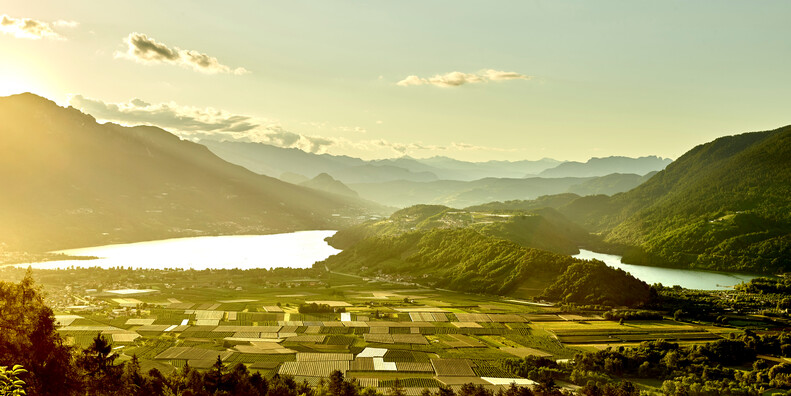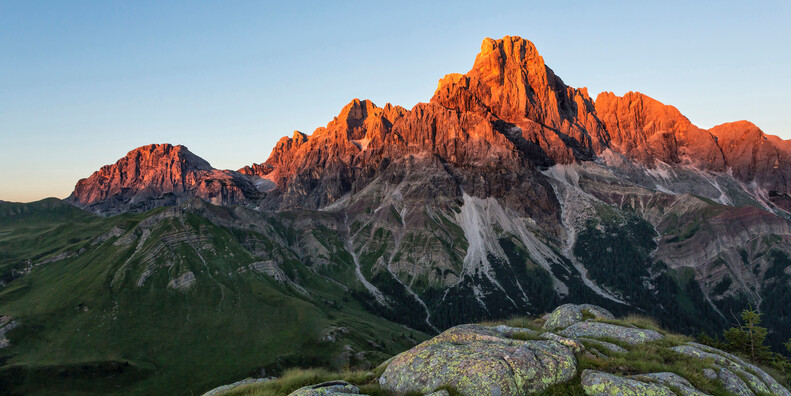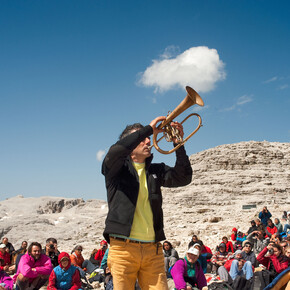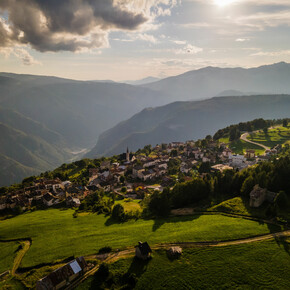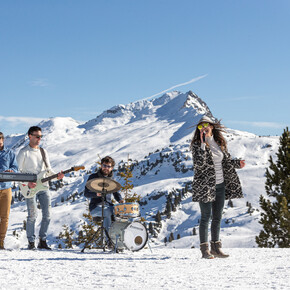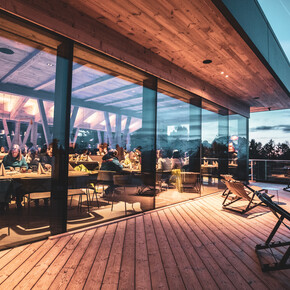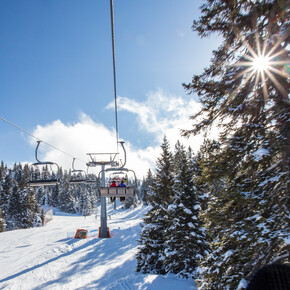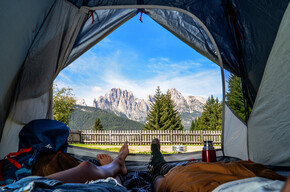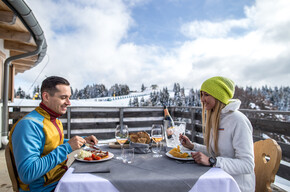Explore Trentino, Italy’s eco-conscious region
With the world’s first plastic-free ski resort, prestigious UNESCO and GSTC awards and an agreement to protect woodland
20th April 2021 - Trentino, the region of Italy stretching from the northern shores of Lake Garda to the Dolomites, has strong local commitment to sustainability with 63% of the area covered in forestry and 30% classed as a protected area. Featuring majestic mountains, three nature parks and 297 lakes and lakelands, Trentino has much to preserve, therefore green tourism is more important than ever. With World Earth Day being celebrated this month, Trentino shines an eco-conscious light on its top sustainable spots...
Home to four UNESCO awarded areas
Confirming its geological value and outstanding natural beauty, The Dolomites mountain range is classified as a UNESCO World Natural Heritage site and Trentino is home to four of the nine sites which include: the Brenta Dolomites, the Latemar-Catinaccio, the Marmolada and the Pale di San Martino. UNESCO has also awarded other areas in Trentino, including the Ledro Alps and Judicaria area, which were granted the status of Biosphere Reserve, the Adamello Brenta Geopark and prehistoric pile-dwelling sites of Ledro and Fiavé.
The world’s first tourist destination to receive an award by the Global Sustainable Tourism Council
Valsugana, to the east of Trento, is the world’s first tourist destination to receive an award by the Global Sustainable Tourism Council (GSTC), founded by the United Nations. Valsugana has underpinned a selection of maximum-impact sustainable actions that vary from the "Giovani Ambasciatori del Territorio" project, offering young adults the chance to attend classes on how to manage a destination; to organising a "plastic free" event where the environment and the sensitization of the participants become the main focuses; to hosting projects that support mountain businesses, focusing on biodiversity and environment protection and much more. These actions contribute to keeping the destination’s resources enjoyable but also respected by tourists, whether they’re relaxing in either the Levico or Caldonazzo freshwater lake, or exploring the remote peaks of the Lagorai chain, a holiday in Valsugana will offer a visitors a memorable experience and the opportunity to make a difference.
Protecting Italian Woodland: The Trentino Tree Agreement
Trentino’s mountainous forests are a crucial part of the Dolomites landscape and an enormous part of local heritage, so protecting them is of the utmost importance to the region. During a night of extremely bad weather in 2018, around four million cubic metres of trees were damaged or destroyed, proving devastating for mountain wildlife and passionate locals. The Trentino Tree Agreement was formed to enable the public to play an active role in restoring forests: each donation works to plant and protect at least one sacred tree in Trentino’s mountain valleys, a strategy which has already helped to rejuvenate the region’s woodlands. The Forest of Violins in Paneveggio, the Forest of the Hermitage in San Martino di Castrozza and the Hidden Forest of Cadino are three focal forests benefitting from the project, with plans to support all of Trentino’s woodlands as donations continue.
Forests are essential for life in Trentino: the woodlands absorb carbon dioxide, increase biodiversity, counteract soil erosion and provide shade and shelter for wildlife, all of which contribute to the air quality and biodiversity that the region is renowned for. Trentino also follows the golden rule of planting more trees than are used, so whilst hundreds of the region’s mountain huts are made from local pine, close care is taken to ensure that woodlands are sustainably managed and maintained.
The world’s first plastic-free ski resort: Pejo 3000
Trentino is home to the world’s first plastic-free ski resort, Pejo 3000. Skiers visiting the resort in Val di Sole will no longer find plastic bottles, cutlery or straws in any of the mountain huts, as well as single-use sachets which previously contributed thousands of plastic wrappers each season. The project relies on the participation of communities and visitors, so informative visual boards educate skiers on the new rules, preventing visitors bringing any plastics in and ensuring that all rubbish is brought back down with them. Going plastic-free is just the tip of the iceberg in the Pejo area’s quest to become the ‘Green Valley’ of the Dolomites.
Green Way Primiero: a territory at the apex of environmental excellence
The entire area of San Martino di Castrozza, Passo Rolle, Primiero and Vanoi is committed to developing innovative projects in the energy sector, reducing combustible fossil fuels, improving mobility and caring for the landscape. This ensures an improved quality of life for local residents, as well as sustainable tourism opportunities through Green Way Primiero’s hiking, climbing and e-bike tours.
For information on visiting Trentino go to www.visittrentino.info/en

